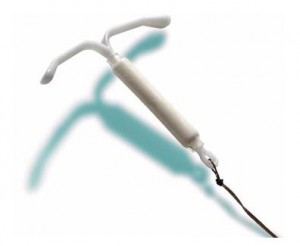FREE MIRENA CASE EVALUATIONS: CALL 1-800-632-1404
Our team of attorneys are now investigating claims and prepared to file Mirena lawsuitsinvolving the intrauterine contraceptive device Mirena®. Manufactured by Bayer Healthcare Pharmaceuticals, Inc., Mirena is an IUD device [intrauterine device] that must be inserted by a trained health care provider and is intended to provide contraceptive protection for up to five years. Some women have experienced serious adverse side-effects and potentially life-threatening complications following the implantation of theMirena device, including perforation of or imbedment in the uterus.
Mirena Lawyer Talks About Unnecessary Surgery for Hysterectomy
Mirena is alleged to have many side effects. Mirena is an interuterine contraceptive device {IUD}. Our team includes Mirena attorneys that want to provide information to women or their loved ones about making a Mirena claim or to discuss a Mirena lawsuit.
Hysterectomy is one of the most commonly performed surgical procedures in the United States. Although doctors claim it is a routine procedure, there are risks associated with hysterectomy. The risks associated with traditional hysterectomy and other surgeries are small, but no surgery is entirely without risk.
Anesthetic Risks
Even with all precautions, including your pre-op visit with the anesthesiologist, sometimes unpredictable reactions to anesthetic drugs can occur. There can be difficulties inserting the endotracheal tube (a tube placed in the windpipe) that is used during hysterectomy to deliver anesthetic gases and maintain the supply of oxygen while you cannot breathe for yourself—deprivation of oxygen for more than a few minutes leads to brain damage or death. Chest infections (bronchitis or pneumonia) may also occur after general anesthesia, particularly in smokers or women with preexisting chest problems.
Bleeding
Postoperatively, bleeding may happen when a knot or clip slips off a blood vessel. This generally happens in the first twenty-four hours after the surgery, before a firm clot has been able to form in the affected blood vessels. Bleeding may be external—that is, it appears from the vagina—or internal, when it is recognized by a rise in pulse rate and a drop in blood pressure. Often minor bleeding will simply stop spontaneously, as your own natural blood-clotting mechanisms kick in, perhaps after a dose of a painkiller such as pethidine, which helps you rest. Sometimes transfusion may be necessary. Another possibility is a moderate amount of bleeding that stops of its own accord, forming a hematoma or internal bruise, which usually collects at the top of the vagina above the stitches there. After some days this starts to appear as a dark discharge—a nuisance, but only a temporary one.
Infections
Urinary tract infections are common after hysterectomy. Urinary tract infections occur because the bladder and urethra are so close to the parts being handled, cut, and stitched. Also, a urinary catheter is used to keep the bladder empty during the surgery. All of this can enable the bacteria, which are normal inhabitants of the bowel, access to the bladder, thereby causing infection.
If you have suffered an injury from a Mirena device, please contact us for help.
FOR A FREE CASE EVALUATION:
CALL TOLL FREE: (800) 632-1404
EMAIL: clicking here.
FILL OUT THIS FORM FOR FREE HELP:
NOTE: Our team of attorneys will review potential cases for all fifty states, including Alabama Alaska Arizona Arkansas California Colorado Connecticut Delaware Florida Georgia Hawaii Idaho Illinois Indiana Iowa Kansas Kentucky Louisiana Maine Maryland Massachusetts Michigan Minnesota Mississippi Missouri Montana Nebraska Nevada New Hampshire New Jersey New Mexico New York North Carolina North Dakota Ohio Oklahoma Oregon Pennsylvania Rhode Island South Carolina South Dakota Tennessee Texas Utah Vermont Virginia Washington West Virginia Wisconsin and Wyoming.
